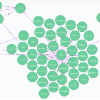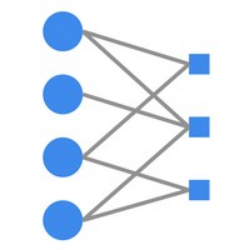The analysis of system reliability has often benefited from graphical tools such as fault trees and Bayesian networks. In this article, instead of conventional graphical tools, we apply a probabilistic graphical model called the chain event graph (CEG) to represent the failures and processes of deterioration of a system. The CEG is derived from an event tree and can flexibly represent the unfolding of asymmetric processes. For this application we need to define a new class of formal intervention we call remedial to model causal effects of remedial maintenance. This fixes the root causes of a failure and returns the status of the system to as good as new. We demonstrate that the semantics of the CEG are rich enough to express this novel type of intervention. Furthermore through the bespoke causal algebras the CEG provides a transparent framework with which guide and express the rationale behind predictive inferences about the effects of various different types of remedial intervention. A back-door theorem is adapted to apply to these interventions to help discover when a system is only partially observed.
翻译:暂无翻译





